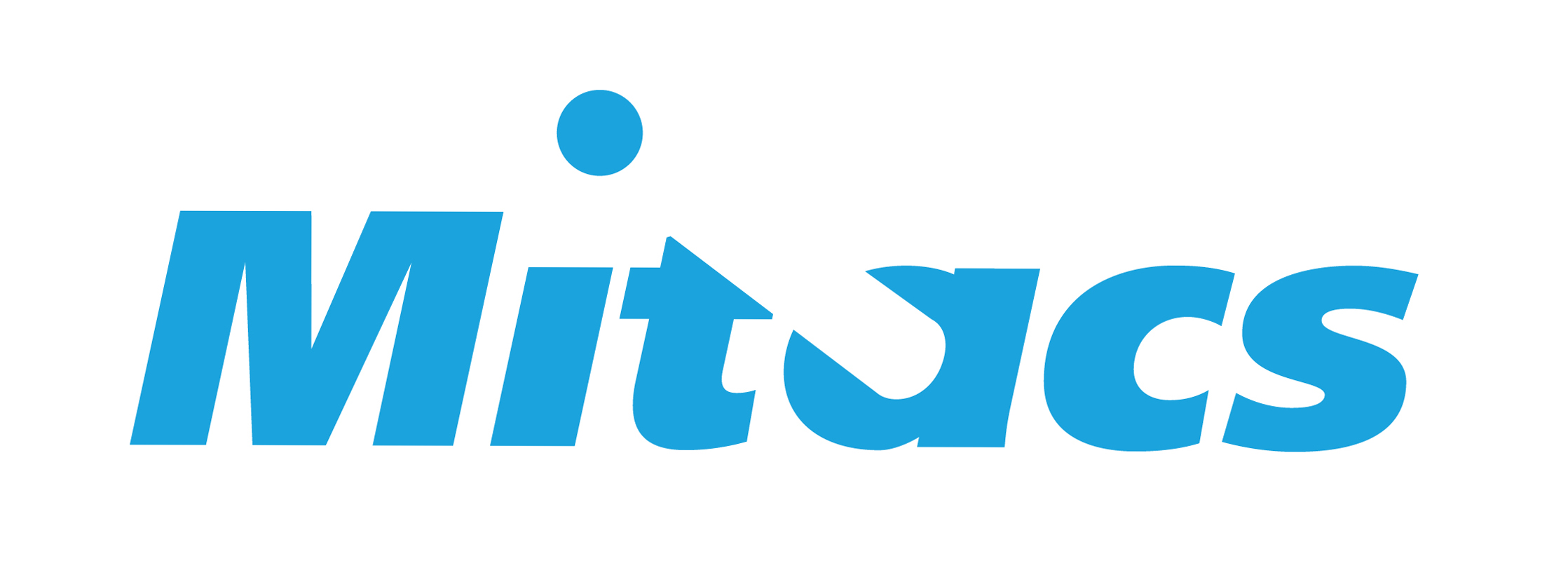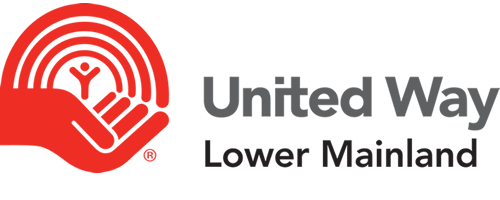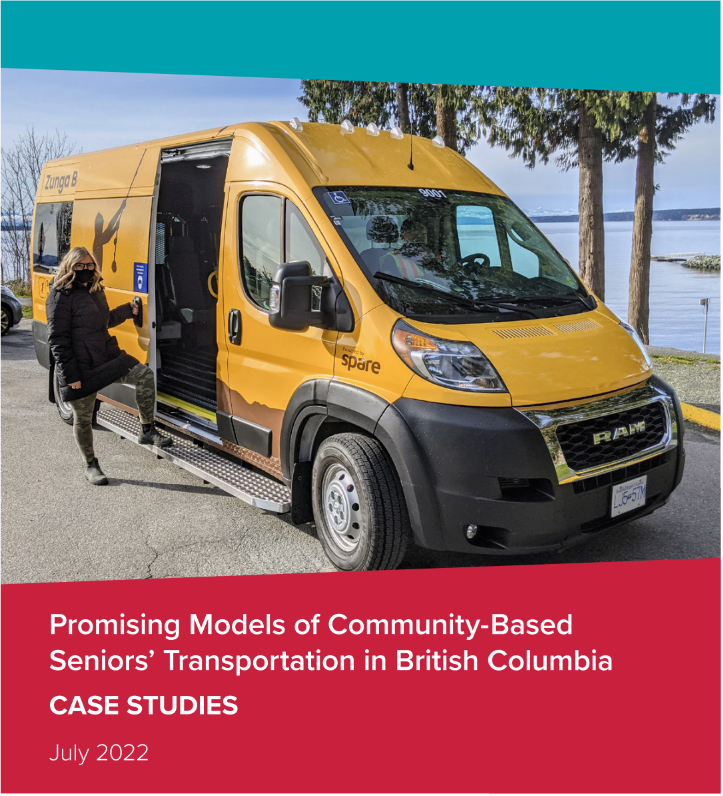Promising Models of Community-Based Seniors’ Transportation in British Columbia
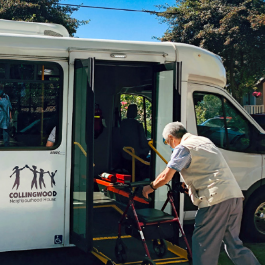
This project profiles promising models of seniors’ transportation, to learn what facilitates and impedes the success of these services with the goal of supporting efforts for wider adoption of seniors’ transportation services across BC.
Transportation is now recognized as a social determinant of health. And yet the current transportation system is not set up to meet the day-to-day needs of the aging population. Within the next decade, a quarter of the population in BC will be over the age of 65. As the population ages, a decline in cognitive and physical abilities will require people to give up driving. To promote healthy aging, we need to introduce, at scale, a range of reliable alternative transportation services for older adults. CHATR lab member Kate Hosford worked as an intern with the United Way and the Provincial Working Group on Seniors’ Transportation to advance understanding of how older adults in BC navigate the driving cessation process and to identify best practices for alternative, community-based transportation services. The findings will be used to make recommendations to the Ministry of Health and Ministry Infrastructure and Transportation on how to support the mobility needs of older adults.
METHODS
Between March and May 2022 case studies were conducted with six community-based transportation services deemed to be promising or successful models of seniors’ transportation and covering a diverse set of transportation models and geographic contexts. The case study process included review of publicly available documents as well as semi-structured interviews with key informants knowledgeable about each service. The services reviewed included:
- Step Up ‘N’ Ride Society, Dawson Creek: a wheelchair accessible transportation service in a small town in northeastern BC.
- Zunga Bus, Powell River: a municipally led on-demand transit pilot in a small coastal city.
- Richmond Cares, Richmond Gives (RCRG) Volunteer Driver Program, Richmond: a volunteer driver service in a medium-sized coastal city.
- Seniors GO Bus, North Shore: a semi-fixed route neighbourhood-based community shuttle serving three neighbouring municipalities.
- Collingwood Neighbourhood House Seniors Shuttle, Vancouver: a door-to-door transportation service in an urban neighbourhood.
- Delta Seniors Bus, Delta: a municipally funded and operated curb side pick-up and drop-off transportation service for seniors in a suburban municipality.
KEY FINDINGS
Across cases, four key learnings are:
- The community-based senior serving sector plays an important role in the creation and operation of seniors’ transportation services.
- Funding for community-based seniors’ transportation is intermittent and inefficient.
- Services that operate two days per week or less have a hard time sustaining ridership.
- Drivers are important to the success of seniors’ transportation services but are hard to find.
Common facilitators and barriers to service success:
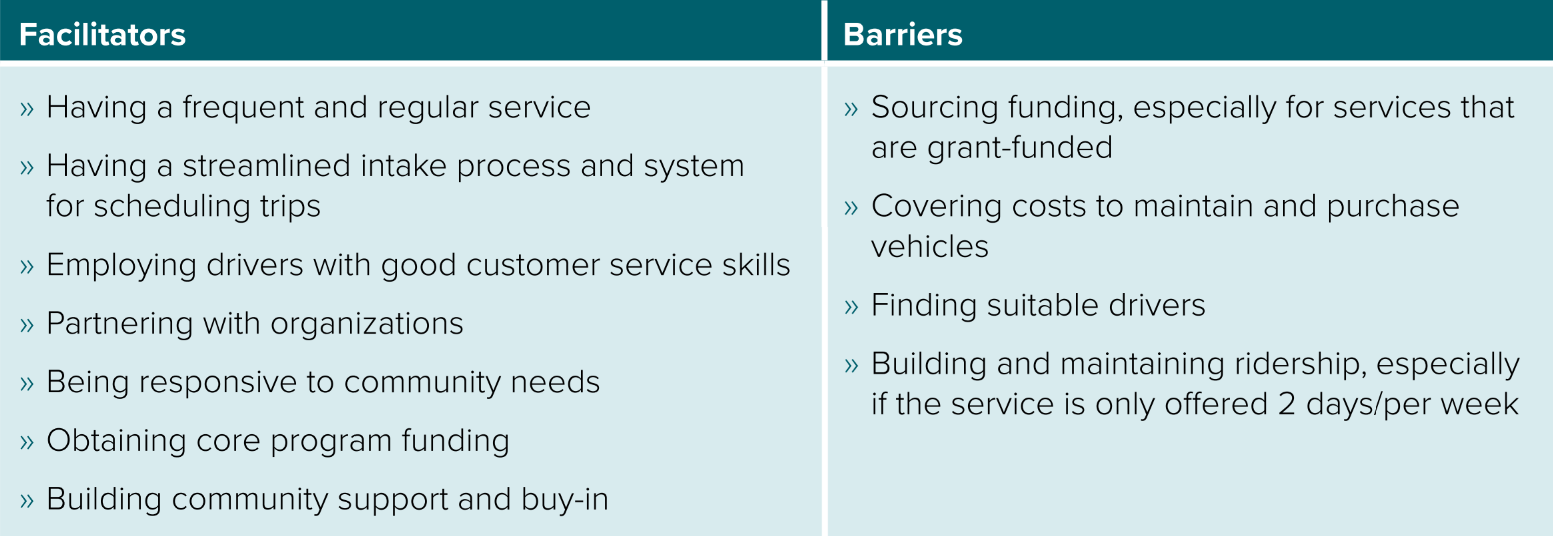
See the full report including recommended next steps Provincial Working Group on Seniors’ Transportation: Promising Models of Community-Based Seniors’ Transportation in British Columbia
FUNDING
This project was funded by Mitacs Accelerate and completed in partnership with the United Way and the Provincial Working Group on Seniors’ Transportation.
